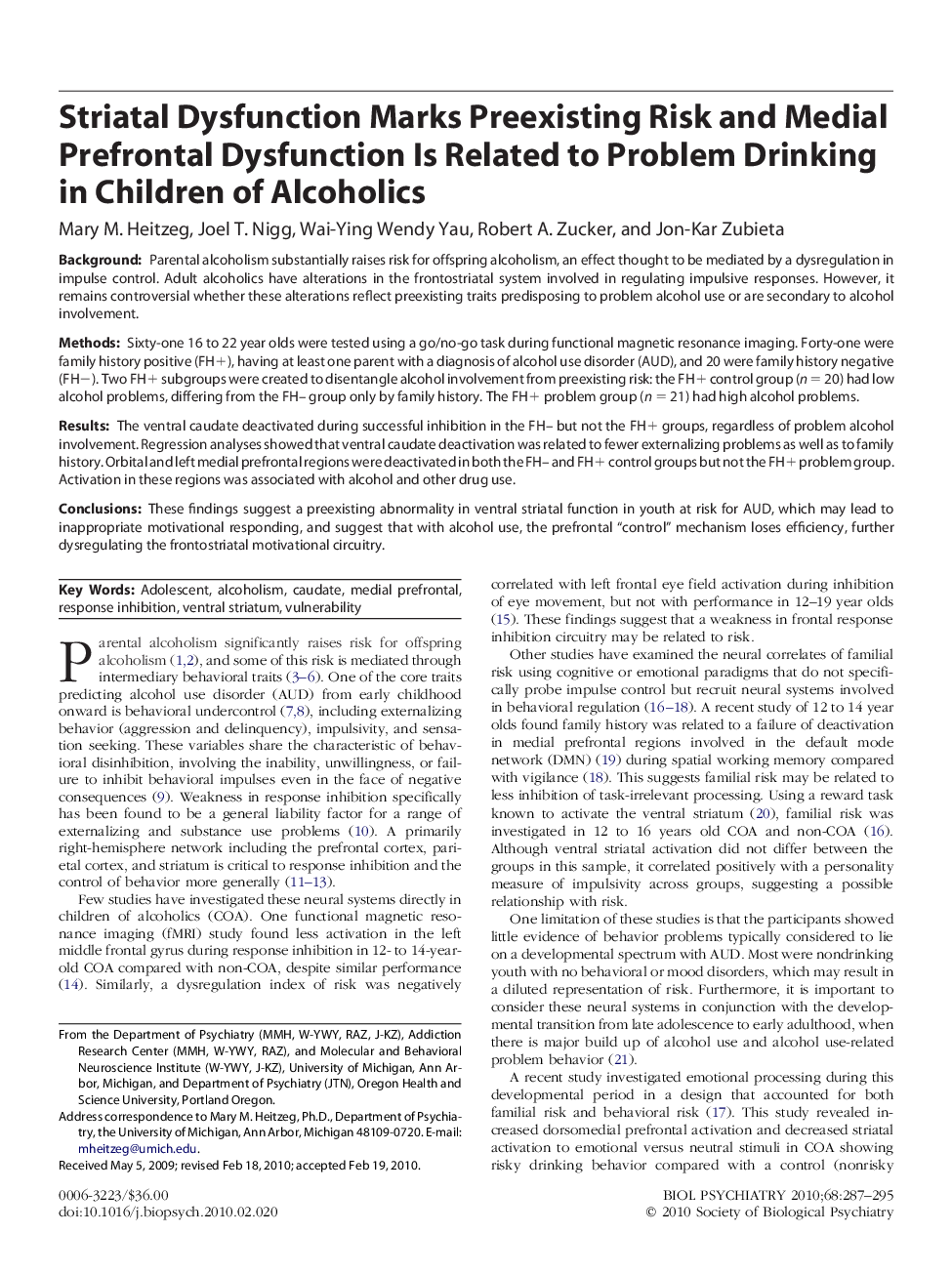| Article ID | Journal | Published Year | Pages | File Type |
|---|---|---|---|---|
| 6228962 | Biological Psychiatry | 2010 | 9 Pages |
BackgroundParental alcoholism substantially raises risk for offspring alcoholism, an effect thought to be mediated by a dysregulation in impulse control. Adult alcoholics have alterations in the frontostriatal system involved in regulating impulsive responses. However, it remains controversial whether these alterations reflect preexisting traits predisposing to problem alcohol use or are secondary to alcohol involvement.MethodsSixty-one 16 to 22 year olds were tested using a go/no-go task during functional magnetic resonance imaging. Forty-one were family history positive (FH+), having at least one parent with a diagnosis of alcohol use disorder (AUD), and 20 were family history negative (FHâ). Two FH+ subgroups were created to disentangle alcohol involvement from preexisting risk: the FH+ control group (n = 20) had low alcohol problems, differing from the FH- group only by family history. The FH+ problem group (n = 21) had high alcohol problems.ResultsThe ventral caudate deactivated during successful inhibition in the FH- but not the FH+ groups, regardless of problem alcohol involvement. Regression analyses showed that ventral caudate deactivation was related to fewer externalizing problems as well as to family history. Orbital and left medial prefrontal regions were deactivated in both the FH- and FH+ control groups but not the FH+ problem group. Activation in these regions was associated with alcohol and other drug use.ConclusionsThese findings suggest a preexisting abnormality in ventral striatal function in youth at risk for AUD, which may lead to inappropriate motivational responding, and suggest that with alcohol use, the prefrontal “control” mechanism loses efficiency, further dysregulating the frontostriatal motivational circuitry.
